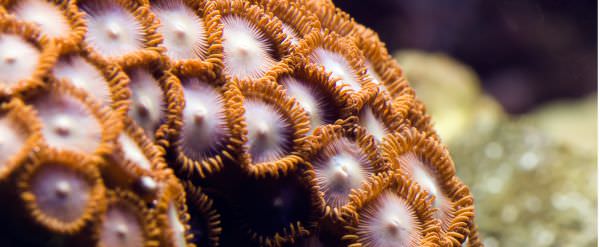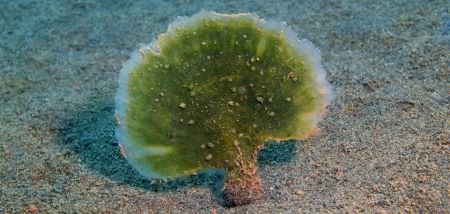Water changes
We can only try to mimic the vastness of the oceans in our home aquaria, but replicating its exacting water conditions can mean the difference between success and failure with marines.
The water around coral reefs has a constant level of salinity, temperature and organic load, and the fish and corals are adapted to only accept those conditions.
When we set up our marine tanks, the synthetic salt mix sets many parameters but over time, the quality of marine water degrades and becomes polluted.
Carry out regular partial water changes with a good brand of synthetic salt and RO water, and mix it thoroughly with a strong powerhead before you add it to the main tank. Test your nitrate levels and try to keep them under 40ppm for marine fish and less than 10ppm for corals and invertebrates.
Regular water changes are the key as allowing nitrate levels to build up will not only stress your livestock but will prove costly in terms of salt when you try to lower them in one big water change. Specialist nitrate removal equipment is available at World of Water marine stores. Please ask for more details.
Feeding
Most marine fish will be happy with a couple of feeds a day, although some fish, like Anthias really require more frequent feeds, so check with your retailer when buying your fish. Flake and granular foods are available for marine fish, as are frozen foods like Mysis, krill, brineshrimp, cockle etc. Some fish, like tangs, are herbivorous, so require foods like spinach or algae – once again research their needs before purchase. Don’t allow food to sit uneaten at the bottom of the tank, as it will affect the water quality.
Equipment Maintenance
The most important piece of marine equipment is often the protein skimmer, and to keep them running efficiently they need frequent maintenance. When the collection cup is emptied, it should also be cleaned every time, as dirty funnels can mean less efficient skimming. Also check the pump impeller and any air intake devices as dirty intakes will mean less air bubbles and decreased performance. If you use an external filter, change chemical and mechanical media frequently.

The Benefits of Chemical Media
Activated carbon and phosphate removers have been explained in other sections of this magazine, but nowhere is their use more important than in marine aquariums. Although not harmful to fi sh, phosphate can cause corals to recede and will prevent the growth of desirable algaes. Even minute traces of phosphate will cause nuisance algae to grow and may affect more delicate corals.
To prevent this from happening, we recommend the use of RO water from the start (which is relatively free of nitrate and phosphate,) and the use of a phosphate removal resin at all times to keep phosphate levels close to zero. Ask in store for our range of phosphate removers.
Activated carbon keeps marine water pure and soaks up any impurities. However, prolonged use can soak up some trace elements as well so experts recommend short exposure to a high-grade carbon for best results.
Other Maintenance
The obvious one when keeping a marine tank is the need for regular algae wiping. The well-oxygenated, brightly lit conditions of the marine tank will make algae growth rampant, and the front glass may need wiping on a daily basis. A strong algae magnet is the best choice for regular wiping, combined with a metal scraper to tackle more stubborn algae. Live rock brings with it desirable algae like pink and purple coralline algae, and lots of undesirable ones that quickly take over. Many marine keepers choose not to fight it too much and let it grow all over their powerheads, pipework and the rear glass.
This helps to disguise any equipment over time, and a bright purple background can look appealing and provide a surface for coral polyps to attach to. Evaporation occurs in all marine aquaria, especially those with very bright lighting and open tops. As water evaporates, the tank water becomes more and more salty, so keep an eye on salinity. RO water RO stands for reverse osmosis and is a way of purifying tapwater.
Water is pushed through a membrane and the resulting water is very pure, free of nitrate, phosphate and chlorine. RO water is perfect for mixing with marine salt, and is better for corals. Top up evaporation losses with RO water, and supplements can be added at the same time. Buy RO water from your local World of Water store

RO Water
RO stands for reverse osmosis and is a way of purifying tapwater. Water is pushed through a membrane and the resulting water is very pure, free of nitrate, phosphate and chlorine. RO water is perfect for mixing with marine salt, and is better for corals.
Top up evaporation losses with RO water, and supplements can be added at the same time.
Buy RO water from selected World of Water stores.
Regular Testing
If you already keep fish, you will be aware of the importance of water testing. For freshwater we check temperature and test for ammonia, nitrite, pH and nitrate. With marines we test for those parameters too, but we also check the salt levels using a hydrometer and we test extra parameters for reef tanks.
Corals not only need constants like salinity, temperature and low pollutants, they also need the correct levels of trace elements and minerals. Test for calcium, magnesium, alkalinity and always test that phosphate levels are low.
Test results will indicate whether or not you need to add supplements and if so, how much. Adding supplements is part and parcel of reef tank maintenance for if levels of calcium become depleted for example, your corals will not be able to grow.
The use of a good salt mix will aid calcium, pH, alkalinity and magnesium levels, and regular water changes will help lower nitrate and phosphate.
Tip: Match the lighting to your livestock. If maximum colouration is your thing, go for Hagen powerglo or interpet triplus. This will enhance fish colours from the red and Orange of goldfish to the blue and yellow of malawi cichlids. For marines, always Choose marine lighting as corals need light of the right spectrum in order to thrive.
 British Pounds
British Pounds
